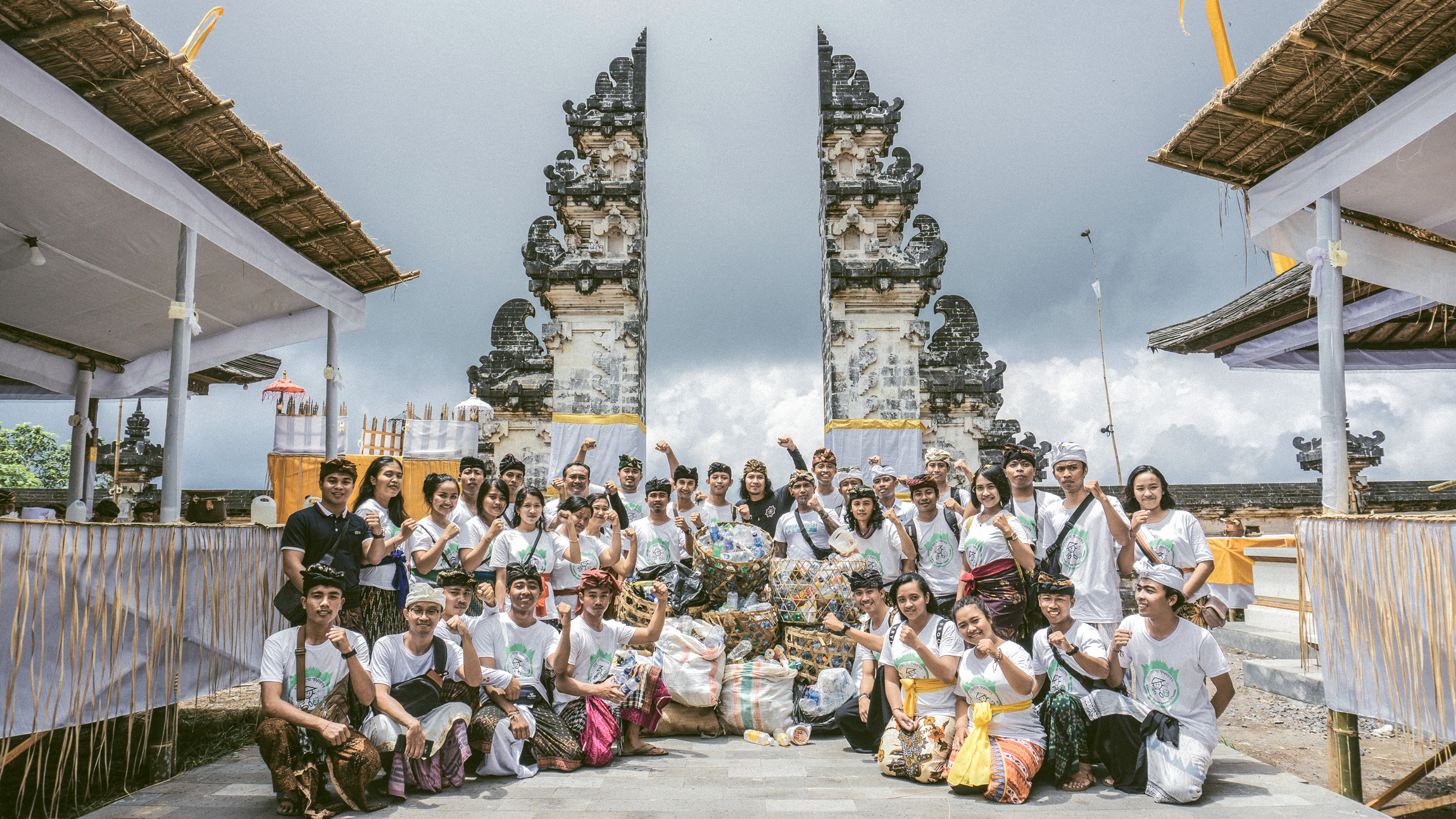

raised of $16,270
45 people have pitched in
91% funded
Pulau Plastik (Plastic Island) is a collaborative campaign to tackle the issue of single-use plastic in Bali and beyond. It leverages popular culture and includes social media campaigns, short videos, and a feature-length documentary to increase awareness about the hazards of single-use plastic, to change people’s behavior and to advocate for change.
THE PROBLEM
Indonesia is the fourth most populous country in the world, yet it is the second largest marine plastic polluter. Each year over 1.3 million tons of plastic are carried by its rivers into the surrounding oceans that are known to be some of the most biodiverse places in the world. According to the Ministry of Environment, Indonesians consume a million plastic bags per minute. The government has made efforts towards tackling this issue. For example, in 2016 the government tested a pilot project of introducing a tax on plastic bags in 23 cities across Indonesia. While the project showed positive results in the reduction of plastic bag use, it was met with resistance from local communities and industry and the nation-wide plan currently remains in limbo.
In Bali, single-use plastic packaging has been very popular with plastic bags, bottles, and beauty product sachets used heavily across the island. It is estimated that the island of Bali alone contributes up to 110,000 tonnes to the plastic waste annually. A “garbage emergency” was declared in Bali in November 2017 after many of the beaches popular with tourists were inundated with trash.
In response to this growing problem, the island has had some great examples of community responses and a number of ongoing local initiatives aimed at recycling and composting. However, there remains much to be done in improving local communities’ understanding of the issue and getting them to actively engage in both partaking in and advocating for solutions.
THE SOLUTION
Since early 2018, Pulau Plastik has been campaigning about plastic pollution to increase awareness on the hazards of single-use plastic in Bali and beyond. The main goals of this project are:
- To change people’s behavior so they refuse, reduce, reuse and recycle single-use plastics.
- To support the implementation of government policy in Bali concerning single-use plastics.
- To encourage adoption and implementation of policy concerning single-use plastics at a national scale.
To achieve these goals, we produced a four-episode series that are used as educational tools at public screenings with calls to action that are enabling us to build the Pulau Plastik campaign and movement. The Pulau Plastik Series, that was produced and released in 2019, has been successful in raising awareness about the hazards of single-use plastic among community members. This series covers key issues surrounding single-use plastics and features Balinese philosophy and its relationship with single-use plastics. To measure the impact of this series on the attitude and behaviors of communities in Bali towards single-use plastic, we conducted pre-and post-screening surveys, as well as follow-up interviews at least a month after the events. More detailed results of the impact assessment can be found through this link.
As of the end of February 2020, the series had been screened at more than 200 community events in Bali, Lombok, Java, Sumatera, Sulawesi, Timor, and Papua, reaching at least 20,000 people. Due to the COVID-19 pandemic, we canceled all scheduled community screenings from March 2020, and have been inviting our audience to watch the series at home through #NontonDiRumah or the ‘watch at home’ campaign through our social media and have received hundreds of requests from people to watch the series from their homes.
In 2020, we completed the production of the Pulau Plastik feature-length documentary which was released in cinemas and online platforms in early 2021.
As a commitment to support communities in Bali and beyond in advocating towards a world without single-use plastic pollution, we continue to screen the Pulau Plastik Series and documentary, as well as to develop a series of action kits for schools, households, local businesses, and villages as concrete actions that people can take to combat the plastic problem.
PROJECT COST
Solution & Project Implementation
Costs associated with the Pulau Plastik Film screening and action kits development.
$12,580
Monitoring & Evaluation
Costs associated with surveys, analysis and reporting.
$1,507
Administration Fee
Cost of transferring payments internationally, processing online donations (5%) and a contribution to Kopernik's operational costs (10%).
$2,183
Total $16,270
Kopernik Solutions is fundraising for this project. Kopernik Solutions will then provide a sub-grant to a trusted partner organisation who will implement the project.



